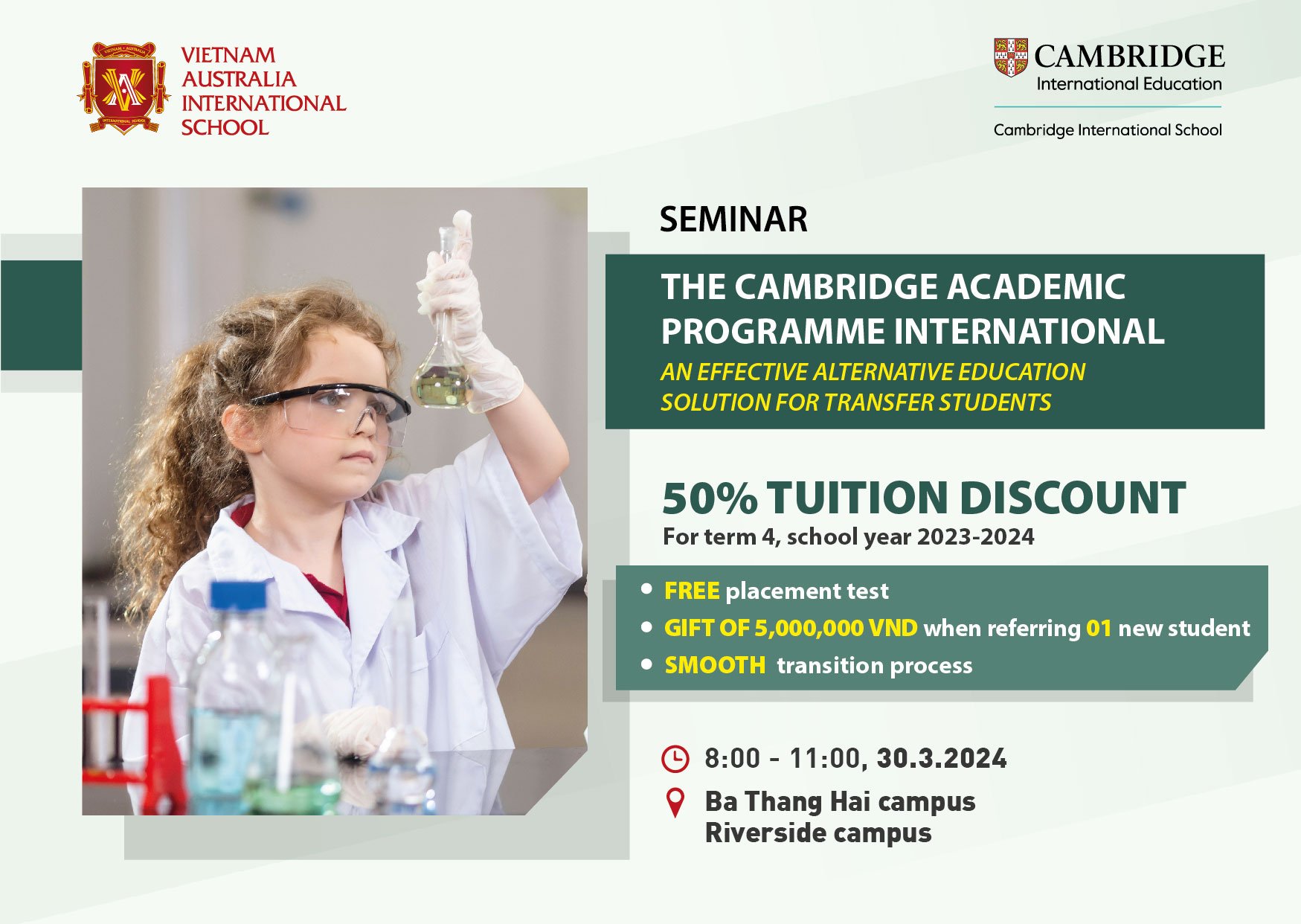Choosing between a monolingual international school and a bilingual international one has garnered considerable attention from parents due to a significant difference in tuition fees ranging from nearly VND100 million to nearly VND1 billion. What are the differences, and what criteria should parents consider when choosing an international school?
2 types of international schools in Vietnam
Ho Chi Minh City currently has more than 20 international schools, offering both monolingual and bilingual education. Choosing a reputable international school entails evaluating key factors like accredited educational programs, the proportion of instruction conducted in English, teacher quality, and globally recognized qualifications.
Monolingual international schools provide education exclusively in English, offering popular programs such as the International Baccalaureate (IB) or the Cambridge International curriculum. Meanwhile, bilingual international schools typically offer 2-3 educational pathways, commonly including bilingual and fully integrated international programs, with academic English instruction ranging from 40% to over 80%, and the most popular program is Cambridge.
Accordingly, the learning outcome of monolingual schools is a degree, a certificate of an international general education program while bilingual schools provide “dual diplomas,” consisting of Vietnamese and international qualifications; the fully integrated international program also provides a single type of international diploma or “dual diplomas” in some schools, depending on students’ needs. An exemplary instance is the Cambridge Academic Program International (CAPI) at the Vietnam Australia International School (VAS).
Choosing a monolingual or bilingual international school?
When selecting an international school and program, parents should consider family goals, financial capacity, and the child’s developmental stages. Comparative factors among schools include qualifications, tuition fees, and educational quality.
Regarding qualifications, if the family’s goal is for their child to study abroad or settle overseas, monolingual programs are the top choice, followed by fully integrated international programs and bilingual programs. Notably, fully integrated international programs in bilingual schools offer equivalent degrees but with tuition fees only 50% – 70% of monolingual schools, making them the optimal cost-effective option.

On the other hand, if parents want their child to have the flexibility to choose to study both domestically and internationally in the future, a bilingual program with “dual diplomas” is the most suitable option. A bilingual program also allows for more flexible curriculum transitions according to students’ needs and developmental stages compared to monolingual programs.
However, it is essential for parents to be aware that in certain schools, the outcome of bilingual programs may only entail Vietnamese degrees and international English certificates, rather than “dual diplomas.”
In terms of tuition fees, considering the same certificates and international qualifications, monolingual schools have tuition fees that are 1.5 to 2 times higher than the fully integrated program in bilingual schools. In comparison to bilingual programs, the highest tuition fee of monolingual schools is 2.6 times higher than the highest fee of bilingual schools.
Regarding the quality of education, depending on the goals and family culture, the priority level of each family may vary based on basic criteria such as educational philosophy, teaching methods, educational programs (British, American, Australian, etc.), overall student achievements compared to global and Vietnamese averages, quality of teachers, academic English instruction duration, facilities, and school services.

| Join VAS’s exclusive CAPI program seminar with exciting offers!
Join VAS’s seminar on the CAPI program on March 30, 2024 and take advantage of exclusive benefits! Enjoy a 50% tuition fee reduction for Term 4 of the 2023-2024 academic year, free placement test, and support programs for transferring students, including a smooth transition to the Cambridge curriculum and Vietnamese language assistance for monolingual students. Register now via hotline: 0911 26 77 55 or website: www.vas.edu.vn
|










